The horse beats me to the stage door by a short nose. Known as Tiz, it’s an opera specialist who comes up from Norfolk for 10 a.m. rehearsal and is driven back home each night. Tiz is on call right through the Fidelio rehearsals — unlike, as Sir Antonio Pappano points out, the star tenor who does not show up for the first act.
This is a fairly sore point, and I wait until late in our conversation to probe it. There has been a media hoo-hah about Fidelio tickets going to ROH friends, leaving hardly any for the general public. Pappano, the quiet man of opera, suddenly shoots up an octave.
‘That’s not particularly true,’ he cries. ‘In October, we released several hundred tickets. They were snapped up. We couldn’t sell Fidelio for love nor money the last time we did it. I don’t understand. Is it because of Jonas Kaufmann? Really?? He doesn’t sing until the second act.’
The notion that Covent Garden keeps its treasures for the rich cuts him to the quick. ‘We are going into 1,500 cinemas with Fidelio on 17 March. That’s a lot of people to reach. We are going into people’s houses, where they live. I try to fight with my TV programmes [the idea] that opera is only for elites and toffs. The best sound in this house is where the cheapest seats are. Get in there early and get a sense of community in this beautiful horseshoe.’
After a record 18 years as music director, longer than Haitink, Colin Davis or Solti, he is about to share thoughts about his future, the mere mention of which sends a chill through the building. Put plainly, Pappano is Covent Garden’s talent magnet. The reason Kaufmann, Netrebko, Terfel and co. turn up year after year, and never cancel as they do elsewhere, is that they love working with a guy who has coached singers since he was ten years old, assisting his father, a private voice tutor, in a Clapham council flat. He would also go out with his mother at dawn, cleaning offices.
His mother is now 86 and when he wants to visit her in Connecticut she tells him not to take time off work. ‘Oh, don’t you come, your work is the most important thing,’ he trills in an Italian accent. ‘That immigrant work ethic was instilled in me.’ So was the paramountcy of family. ‘If there’s one thing I’m proud of,’ says Pappano, ‘it’s the family we’ve created at Covent Garden.’
Moving to America in his early teens, he caught the twang but left the country when Daniel Barenboim plucked him from a City Opera piano to be his assistant at Bayreuth. He learned to be a music director in Oslo and Brussels, where an EMI producer negotiated his transfer to London.
Covent Garden has been his preoccupation ever since, but that is about to change. He turned 60 a few months ago — with an intimate dinner for 50 in his favourite St John’s Wood restaurant — and he’s thinking hard what to do with the rest of his life. First, he has booked a sabbatical next year — ‘during the season,’ he stabs the air, though he’ll be reachable by email. To escape altogether, he’s taking a slow trip to the Antarctic and Patagonia with his wife Pam, a voice coach.
They have been married 25 years and work together from time to time. ‘At the beginning and end of season,’ he clarifies, ‘there’s no ballet here, so it’s opera full-on and we don’t have enough pianists. She comes in, and they love her. In our life, Pam doesn’t say a lot, but two words and I understand everything. In that way, she has a tremendous influence and a tremendous power. And I also say she’s a moral force. She’s terrific with people, we share decisions.’
Those decisions are beginning to take shape. During his year off, he will conduct Puccini’s Fanciulla del West in Berlin (‘Danny’s house’) and the ROH production of Szymanowski’s King Roger at La Scala. He is also giving masterclasses at Aldeburgh and the Royal College of Music, reaching down to his roots. Last summer he conducted the National Youth Orchestra of the USA. ‘It was a picture of America,’ he says: the melting pot, all the colours, that energy. I’m building bridges again to America after not conducting there for years.’
That could be where his eye turns once his contract ends at Covent Garden in 2023. Or maybe not. I chide him that he has told me many times that he’s leaving the ROH, only to sign on for five more years. He looks sheepish. ‘I’ve been offered other houses,’ he says, ‘and I turned them down because I don’t think I could replicate the conditions here — the family that has been created. And I like the building. I like the fact that rehearsal rooms have windows. That’s quite rare, actually.’
He lets slip that ‘there’s a Ring with Barrie Kosky which I’m very much looking forward to’ in the season after he is supposed to have left. No need to shortlist his successors yet.
Meanwhile, he says, ‘I’m gonna do what is essential to me. Over the years I’ve given away a lot of sexy operas to other conductors — to get them [to work] here. Three times Elektra has come here with other conductors. Next time, Jesus Christ, I’m gonna do it. Wozzeck I haven’t done since 2002. I’m thinking of myself a bit — two new Verdi productions. Verdi doesn’t lend itself to conceptual treatment. That’s my job: to defend Verdi. Do it with passion and conviction. Tell the story.’
Before anyone calls him conservative, he urges the Royal Opera chief Oliver Mears to challenge him with new directors. ‘Ollie immediately got that. He’s very different from Kasper [Holten] and that’s good for me.’ He finds Tobias Kratzer, the Fidelio director, ‘really interesting.’
Away from the ROH, he is music director of the Santa Cecilia orchestra in Rome. Santa Cecilia has been booked as resident orchestra of the Salzburg Easter Festival in 2024, a summit won as a result of Pappano’s intensive work ethic. Watching him in rehearsal, he never lets up. Even if it’s conducting the house pianist while chorus members block their spots on stages, his arms are high and his intensity palpable.
Beyond 2024, he maintains: ‘I don’t have anything in the book. I’m not actively seeking employment. I’ll be 65. There are so many young conductors around. You should hear them, I work them hard.’ There are two he’s training at Covent Garden that he thinks will go right to the top.
Accusations of elitism offend him personally. The floor-mopping immigrant kid who is now a knight of the realm does not take lessons on diversity quotas from the Islington cappuccino classes. Instead, he has his own view on who the audience should be. ‘In this country,’ says Antonio Pappano, ‘I’ve observed that despite all our talk of wanting to bring in younger audiences, opera is something that you come to… later. Younger people tend to be restless. We’re asking them to sit sometimes for five hours on end. I’m comfortable with classical music, in general, that you come to it later in life.’
As for your chance to see Jonas Kaufmann in Fidelio: ‘Hey, if you want to go to the opera you gotta plan ahead — especially if you want to come to this opera house.’
Got something to add? Join the discussion and comment below.
Get 10 issues for just $10
Subscribe to The Spectator Australia today for the next 10 magazine issues, plus full online access, for just $10.
Fidelio is in rep at the Royal Opera House from 1 to 17 March.
You might disagree with half of it, but you’ll enjoy reading all of it. Try your first month for free, then just $2 a week for the remainder of your first year.

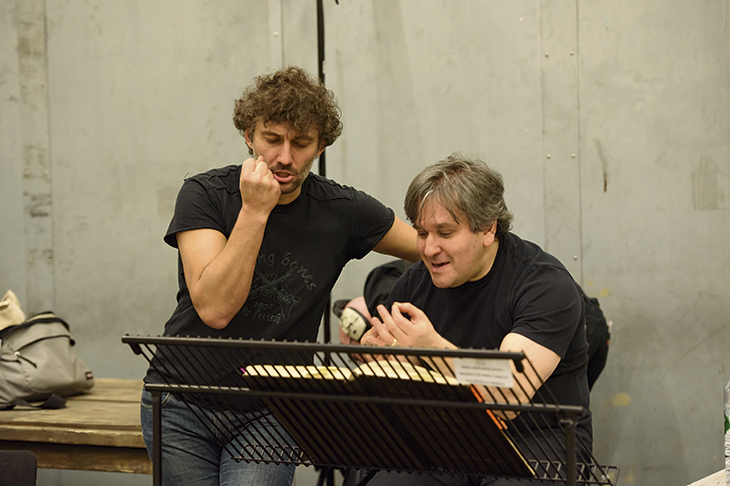

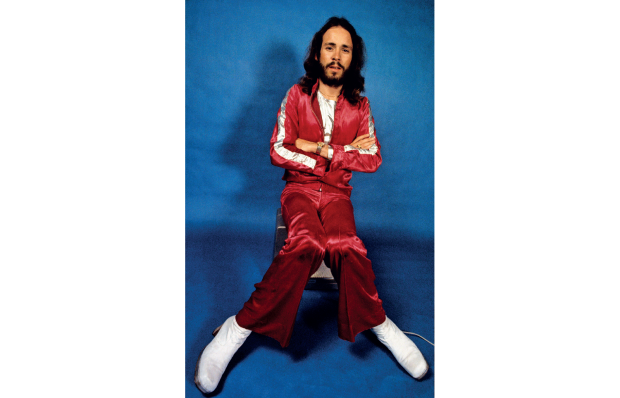
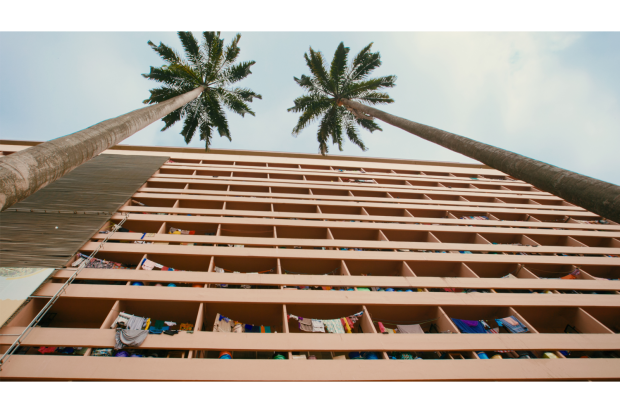
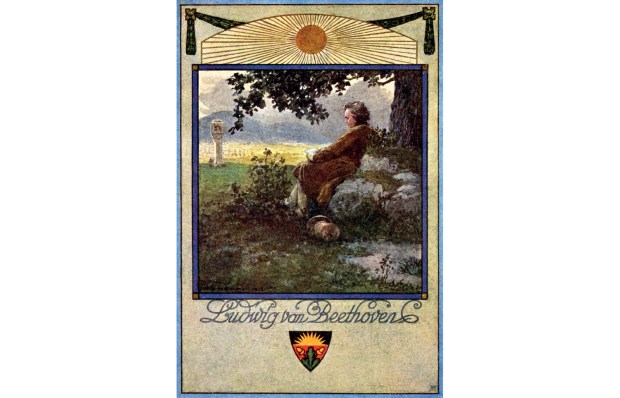
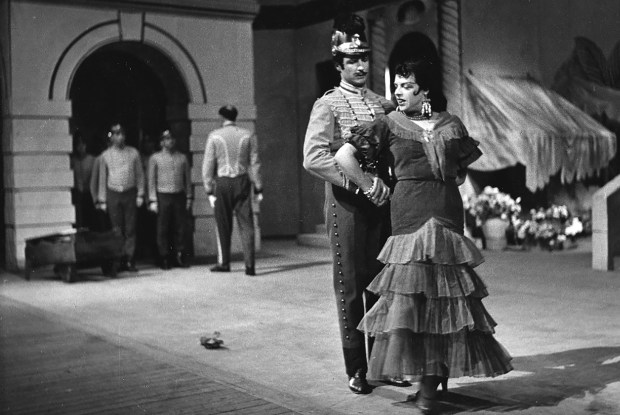
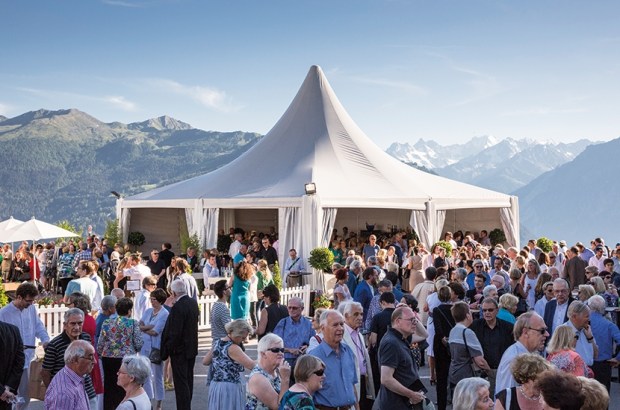






Comments
Don't miss out
Join the conversation with other Spectator Australia readers. Subscribe to leave a comment.
SUBSCRIBEAlready a subscriber? Log in